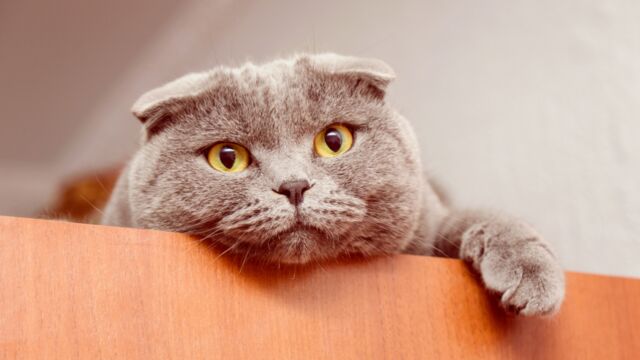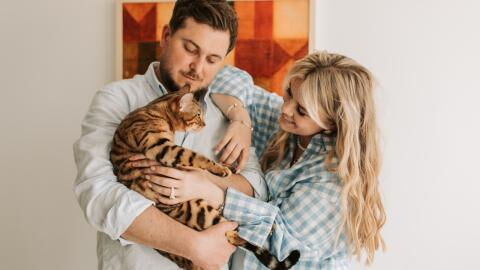Cat obesity is an issue
We all have a friend who has a "super fluffy" or "chubby" cat that only lives for its cat bowl and its digestive naps. Well, regardless of whether you love your cat or not, you might have to face their weight problems and the risks associated with them (heart problems, heart murmur, joint pain, digestive problems).
Discover our latest podcast
And it's not as uncommon as you think. A recent survey conducted by Direct Line insurance reveals that dogs and cats are getting bigger. Indeed, the study estimates that at least 1 million cat owners found out that their cat was obese in the last year. And the numbers are steadily increasing...
Why is your cat overweight?
There are several reasons a cat might have weight issues.
- Your cat is stressed out
- Your cat has a complicated relationship with food (for example, maybe, in the past, your cat was undernourished)
- Your cat has health problems
- Your cat was sterilized
- The food you give your cat isn't appropriate or you're giving it too much
- Your cat just loves to eat!
All these parameters may vary depending on your cat's sex, breed, and age.
How do you care for an obese pet?
Quality food
To take care of an overweight pet, you have to feed it with quality food. Make sure you get them the right brand of kitty kibble: it has to contain protein and meat. If you're not sure which one to buy, ask your veterinarian for appropriate options.
Note that the cat food sold in supermarkets is often very low in quality and not very nutritious. It's best to buy cat food that's healthier (but more expensive). Your cat will eat less of it anyway.
If there's no change in your cat's weight, you can buy specialized cat food (for sterilized cats or overweight cats).
Feeding your cat cooked zucchini will help it feel full and to prevent it from overeating.
Measure its food
If your cat has access to food all day long and is gaining weight, it might just be eating too much. You may be tempted to spread its meals, feeding it once in the morning and once in the evening, but cats love to snack all day long. Make sure you give it the right amount of food. This is called portion control and the correct portion is usually designated on the packaging depending on your cat's size and age.
Avoid giving it too many treats
Avoid force-feeding your cat with treats and leftovers: make sure it eats the cat food it has access to. They're designed for cats, with all the nutrients necessary to their health.
Encourage physical activity
A lazy cat that sleeps all day and only leaves its basket bed to eat and respond to nature's call can easily gain weight. Keep your cat active so it eliminates uses up its energy stores and stays in shape. Play with it, buy it stimulating toys or consider getting it a little roommate so it has a friend to play with.
If, despite all these changes, you still see no change in your cat's weight, make an appointment with the veterinarian for further examination and, hopefully, to find a solution.















